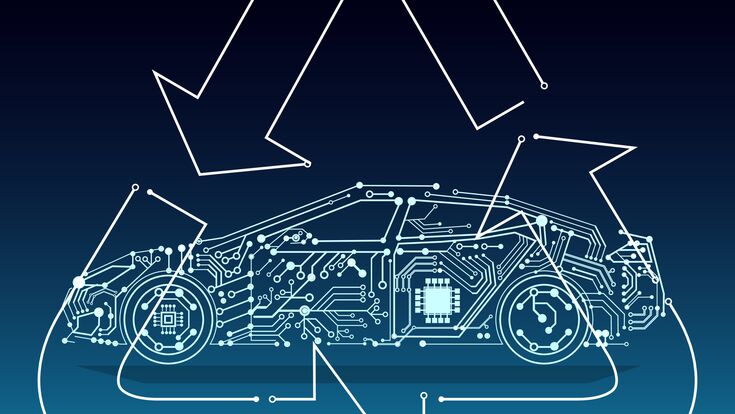Battery Recycling : New solutions for EV battery recycling are urgently needed

Batteries are everywhere. In our mobile phones, our notebooks, our vacuum cleaners and lawnmowers. And, of course, in more and more cars. Between 2010 and 2018, battery demand grew globally by 30% annually and reached a volume of 180 GWh in 2018. Global battery demand is expected to continue to grow by 25% annually, reaching 2,600 GWh in 2030. Apart from the ever-increasing number of electronic devices, it’s the electric vehicle sector that is the key driver. In Germany, a record number of 356,000 new e-cars were registered in 2021. In Norway, almost two thirds of all new cars are already battery-electric. It seems that the Scandinavian country will be able to achieve its goal to launch emission-free passenger cars only from 2025 onwards.
Batteries play an important role in decarbonising transport as well as helping to shift from fossil fuel to renewable power generation as a dispatchable source of electricity. But all those batteries will reach their end of life.
But the recycling of EV batteries is a special challenge, as Martin Reichstein, Managing Director of REDUX Recycling GmbH, explains: "We are dealing here with new products where no recycling standard has yet been able to develop. What is needed here is closer cooperation between battery manufacturers and recycling companies.
Because of the flammable substances and the electrically stored energy, e.g. the voltage of used e-car batteries is up to 700 volts, e-car batteries pose a special challenge for recycling. In addition, not all e-car batteries are the same. They differ massively in their chemical structure and composition. In addition, hazardous materials are involved in the various recycling steps, where valuable raw materials such as cobalt and nickel are recovered."

REDUX and Saubermacher have developed a new method to recycle e-car batteries: "REDUX Recycling has an approved operating facility that can efficiently process up to five tonnes of Li-ion batteries per hour.", says Reichstein. "With a recycling efficiency of 95% for metals, REDUX already achieves the planned specifications of the new EU Battery Regulation."
Many of the e-car batteries will only be recycled after a time lag, estimated at eight to ten years, Reichstein adds and calls for the construction of appropriate recycling facilities to begin now. "There is already no sufficient security of disposal." Recyclers therefore demand that manufacturers be held accountable and are already thinking about recyclable products when designing the batteries.
Read the whole story and full interview in our current issue of Waste Management World.

